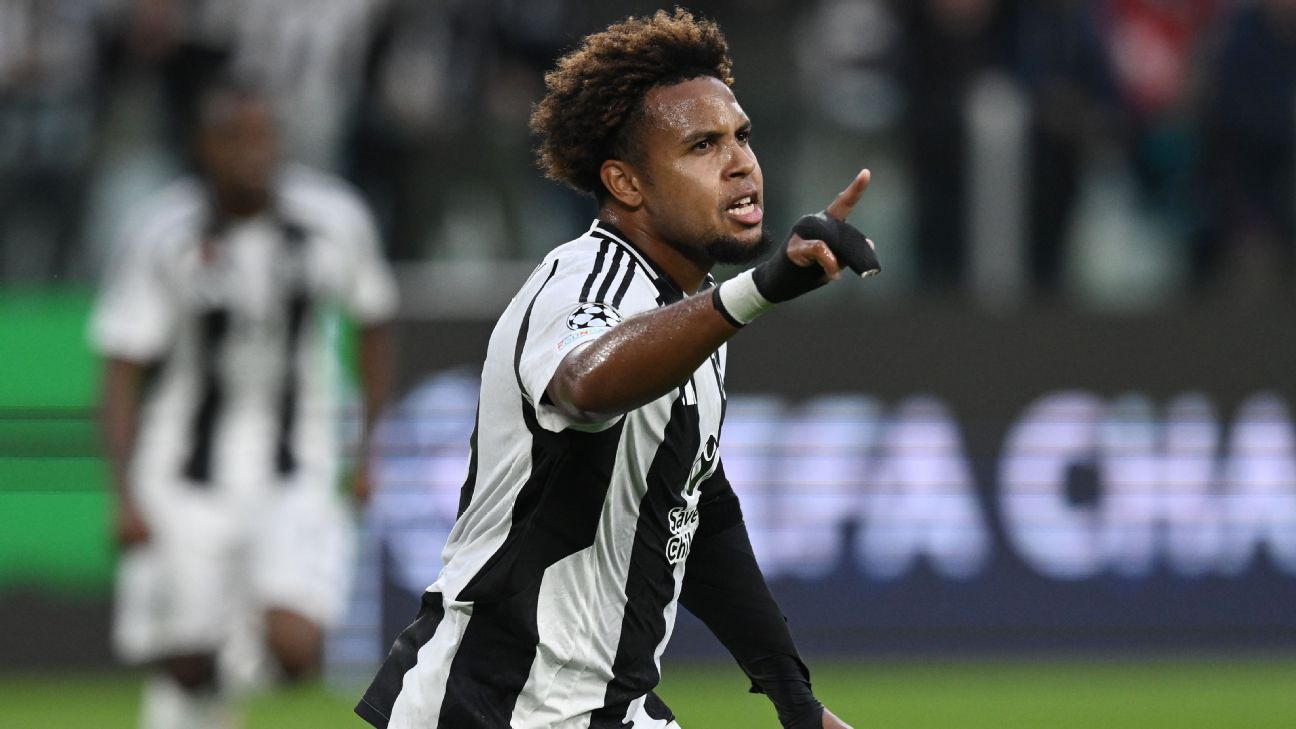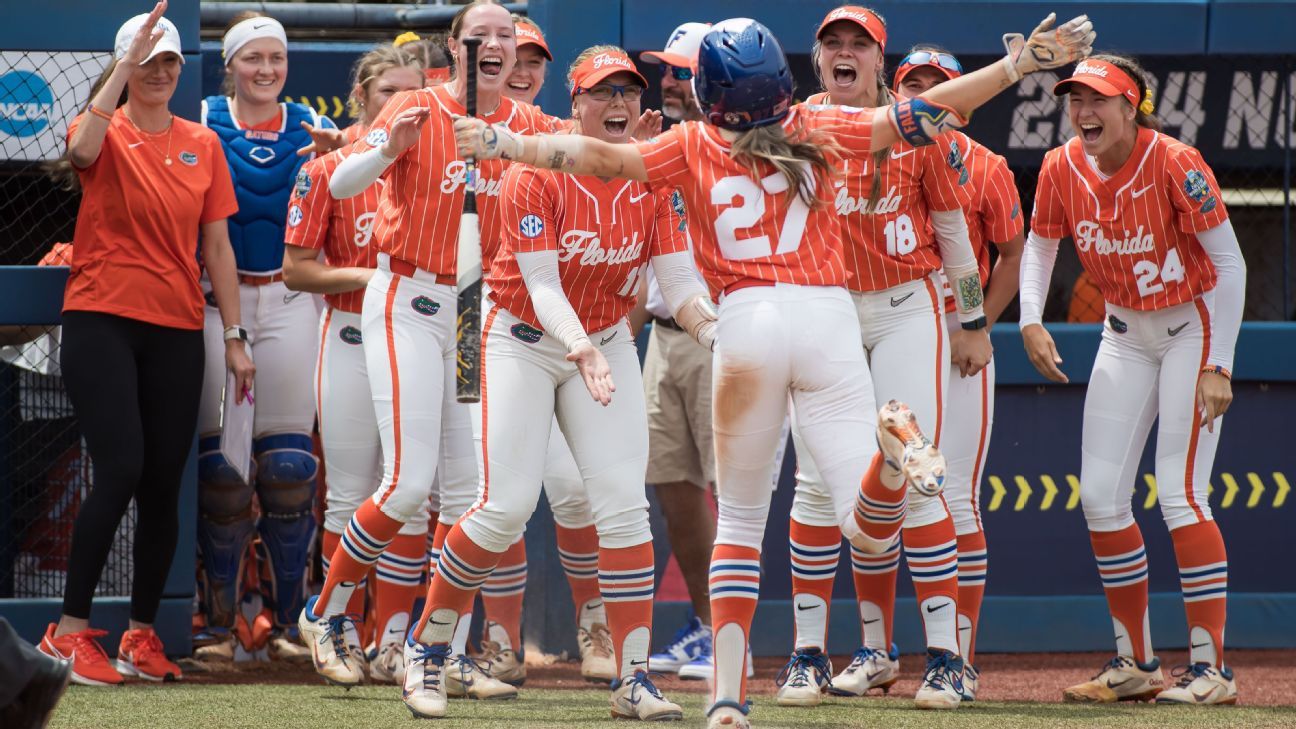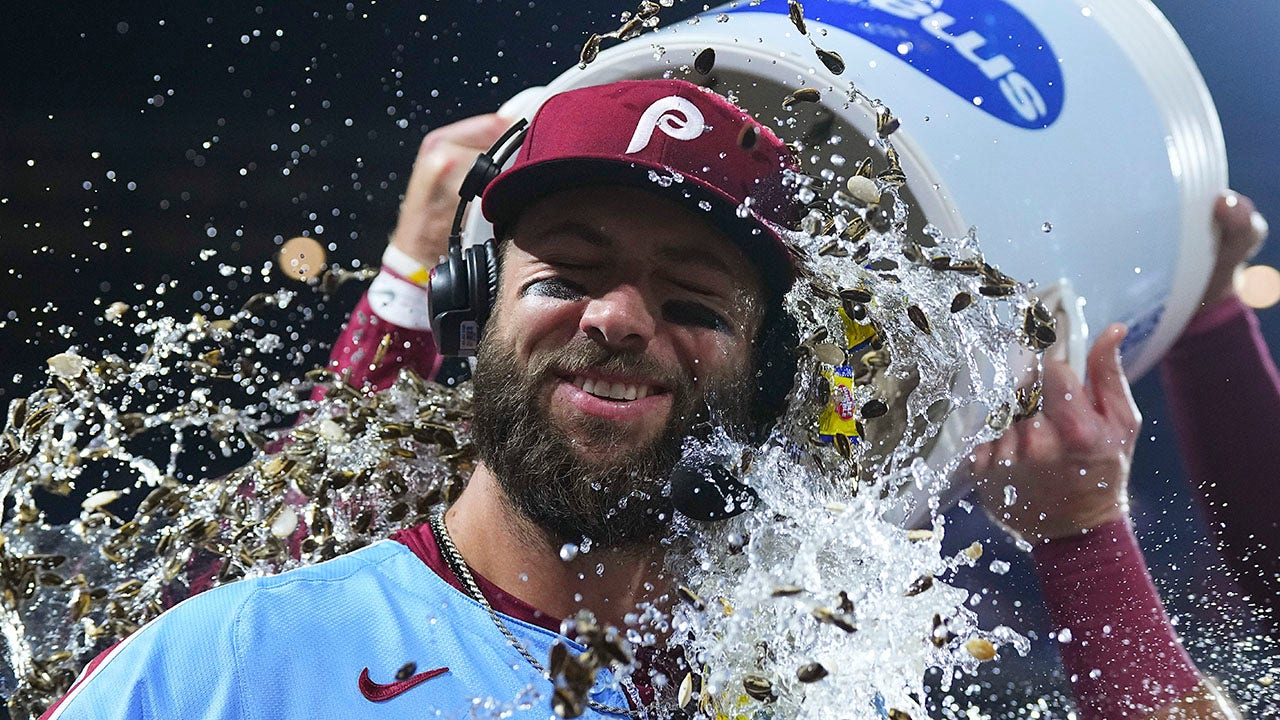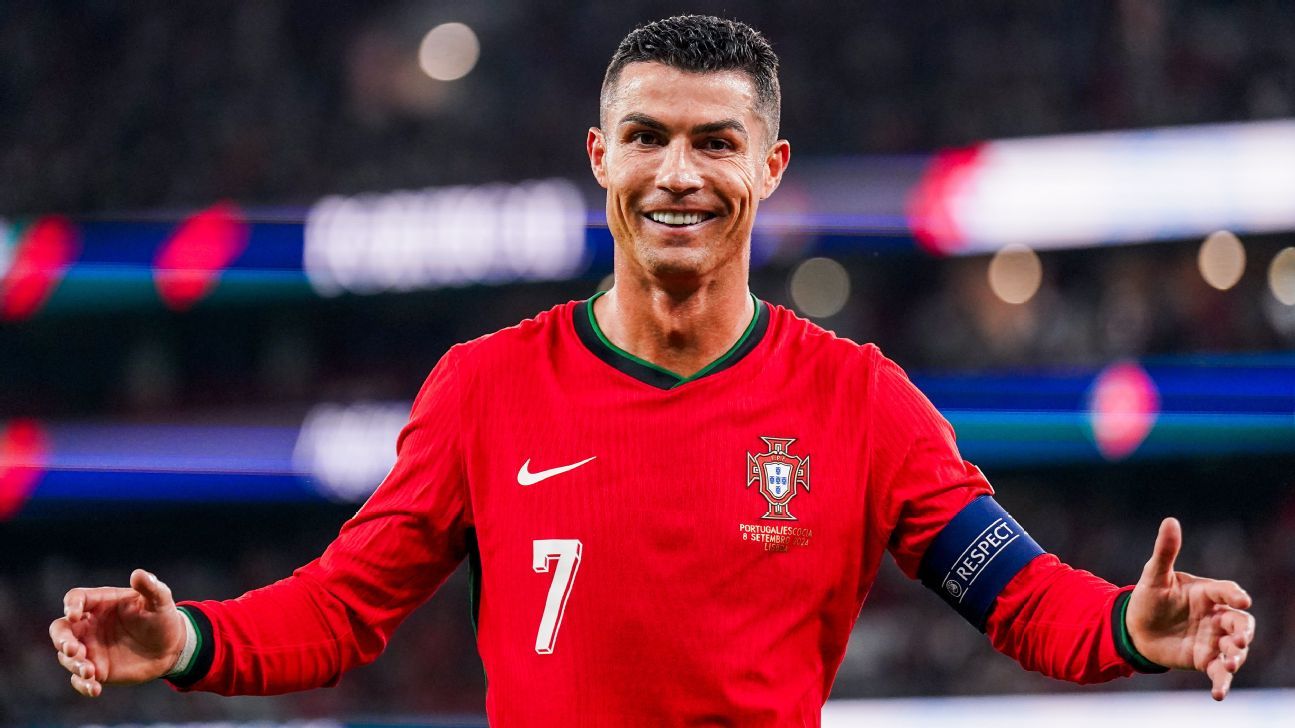The 2024-25 UEFA Champions League is now underway with its new format and Matchday 1 has concluded: Real Madrid have begun the defence of their title, while giants Manchester City, Bayern Munich and Paris Saint-Germain have all started with a win. After a first round full of goals, drama and storylines, we asked our writers Gab Marcotti, Mark Ogden and Alex Kirkland to answer some of our most burning questions.
Does the new model mean we will see more routs like Bayern's 9-2 Zagreb or Celtic's 5-1 Bratislava? And is it right for teams to increase their score?
Ogden: I'll answer the second part of the question first: I have no problem with teams scoring a lot of goals. It's a league competition, goal difference can be important at the end and, as brutal as it may seem, that's the reality of life at the top. If it's a cup tie between teams from three or four different divisions, then you don't have to humiliate the smaller team by scoring a lot of goals. But all 32 teams in the Champions League are in a league competition, so it's difficult, you have to move on.
As for the first part, I don't see how the new model can influence the prospect of more victories. Bayern could have faced Dinamo Zagreb in the old group stage and scored nine goals, so let's put aside the idea that the new format will give us bigger winning margins. Arsenal beat Lens 6-0 in last season's group stage, Atletico Madrid beat Celtic by the same scoreline. A year earlier, Liverpool beat Rangers 7-1 and Napoli won 6-1 at Ajax. So there's really nothing unusual about Bayern and Celtic's results this week.
Marcotti: I don't understand it – why would the new model encourage goal difference? Goal difference was also present in the old group stage. If anything, you could argue that with eight games it is less important. Also, Bayern beating Zagreb is one thing, Celtic beating Slovan Bratislava is another. There are different levels of resource imbalance in that respect.
As for running up the score, I guess it's a cultural thing and a way of showing respect to the opponent. In some cultures, it's about playing hard to the end and scoring as many goals as you can. In others, like mine, once the game is won (and there's no particular incentive to score more goals because goal difference isn't rewarded), there's no point in running up the score and making the opponent look bad. What I think is pathetic is for teams to run up the score when the opponent has had a player sent off. That's frankly unnecessary.
Kirkland: As Mark said, we have always had great results in the Champions League. Real Madrid scored five goals against Celtic in 2022, five against Shakhtar Donetsk in 2021, six against Galatasaray in 2019 and five against Viktoria Plzen in 2018. There are countless examples. In a competition that often pits Europe's biggest and most well-funded teams against the champions of much less wealthy leagues, it is inevitable. And running up the score is fine. It's sport. They are professionals. It would be disrespectful to do anything else.
1:24
Nicol: “Liverpool totally dominated” AC Milan
Stevie Nicol and Craig Burley react to Liverpool's dominant performance after conceding the opening goal to Christian Pulisic and AC Milan.
This European season will be long and gruelling for the players. Which team has the best support team to rotate and make an impact?
Ogden: The obvious answer here is Manchester City and Real Madrid, but let’s look a little deeper into this season’s new format and explain why it’s not as gruelling as some may think. Why? Because there are more opportunities for the big teams to rotate their squads and take it easy. They know they will qualify for the knockout stages barring an incredible run of poor form and bad luck, so they can take some games less seriously than perhaps in a traditional group stage.
City can field their reserve team against Slovan Bratislava on Matchday 2 and win. Even if they don't, City will still qualify. And manager Pep Guardiola will also know that he won't need to field all his key players against Sparta Prague or Club Brugge. The bigger games against PSG and Juventus will need a stronger squad, but with the top clubs having so many opportunities at this stage, we'll see many of them treating some games as if they were Carabao Cup first-round ties, which won't make for great spectacle.
Marcotti: I think there are two different factors at play here. One is rotation once qualification has been achieved. It happened regularly on Matchday 6 (and sometimes on Matchday 5) under the old format. With this one it is supposed to be a disincentive because clubs care about their qualification (I'm not really convinced that's the case, frankly). But the other factor is the teams that are likely to rotate from the start. And here a team like Inter (and to a lesser extent Atletico Madrid) will have an advantage.
When you have teams that are used to playing with the same starting XI most weeks and suddenly you have four or five new faces, that will have an impact, even if they are all stars. But when you have teams, like Inter, that rotate throughout the season, there is a certain interchangeability. We saw this on Matchday 1, when Inter travelled to face City and Simone Inzaghi had no problem leaving Lautaro Martinez, Denzel Dumfries, Benjamin Pavard and Henrikh Mkhitaryan on the bench. In a league scenario like this, that can give you an advantage. But, frankly, it’s all talk at the moment – once the knockout stages start, you’ll see the best XIs.
Kirkland: Real Madrid have a strong squad, no doubt about it. On Tuesday against Stuttgart, they had Éder Militão, Luka Modric, Arda Güler, Endrick and Andriy Lunin on the bench, even though David Alaba, Eduardo Camavinga and Brahim Díaz are injured. It's practically an alternative eleven that could compete in the Champions League.
Coach Carlo Ancelotti has already spoken of plans to give players short, individual breaks as the season progresses, so he will rotate them. Otherwise, Atletico Madrid's squad is stronger than it has been in years. And Barcelona's squad is stronger than you might think, given the quality of its youngsters and the number of players (Ronald Araújo, Gavi, Fermín López, Frenkie de Jong, Dani Olmo) who are currently unavailable.
Several American players excelled in the matches, including Weston McKennie and Christian Pulisic. Who impressed you the most and why?
Ogden: I was impressed by Christian Pulisic's goal for AC Milan against Liverpool. Great run, great finish, but that was the best he could do that night. Still, a spectacular goal at the San Siro against Liverpool is not a bad contribution.
Marcotti: You mentioned Pulisic, so I'll talk about McKennie. Juventus tried to get rid of him in the summer not because he was terrible, but mainly because they were in cost-cutting mode, he wasn't living up to his salary and he was a year away from becoming a free agent. They considered a new contract, but it was actually a pay cut which, let's face it, can be a bit humiliating.
McKennie wasn't interested in leaving and basically ended up betting on himself: that he would get enough playing time to be able to leave next summer as a free agent (and maybe even get a pay rise). That's a credit to him and it's a credit to Thiago Motta who, once the window closed, was open to giving him minutes. And he rewarded the manager with a goal in the win over PSV.
Kirkland: McKennie is the one who stands out, not only for his goal, which was well taken, but for his overall good performance. Otherwise, I had never seen Malik Tillman play and I thought he performed decently for PSV.
Ogden: I would say Celtic are the more impressive team. Scoring five goals against Slovan Bratislava was one thing, but the atmosphere at Celtic Park underlined what the Champions League means to teams who are not among the few who could win. Two wins are probably enough to qualify for the play-off stage and Celtic are already halfway there. This new format offers clubs like Celtic the chance to reach the knockout stage, so the final few days could be as exciting as UEFA hopes. The least impressive? AC Milan. It's sad to see one of the world's great clubs (only Real Madrid have been European champions more times than Milan) put in such a dismal performance against Liverpool. The days when Milan dominated the competition are not a thing of the past, but they do seem a million years ago. Marcotti: In the last 30 months, only one team has gone to the Etihad and prevented Manchester City from scoring. That was Arsenal in the Premier League last year and now Inter have matched that feat. And I think it was impressive because Inter had their own chances (as did City, but that's inevitable). The most disappointing game has been the one against Real Madrid. Yes, they won, but Thibaut Courtois had to make incredible saves and the third goal was a last-minute gift to Endrick. So far, the attacking trio of Vinícius, Kylian Mbappé and Rodrygo, plus Jude Bellingham, is not working. I thought that, given the players Stuttgart lost in the summer, this would be the game where Madrid could shine, at least in attack. They didn't. Kirkland: I was impressed by two teams whose performances deserved more than the results they achieved: Girona and Stuttgart. Girona played very well in their Champions League opener against PSG and were unlucky not to leave Paris with at least a point, conceding in the 90th minute thanks to a mistake by goalkeeper Paulo Gazzaniga. PSG coach Luis Enrique said afterwards that playing against Girona was “worse than giving birth”. And yes, Stuttgart ended up losing 3-1 at Real Madrid, but they deserved much more, playing bravely, attacking and creating plenty of chances. Biggest disappointment: Manchester City 0-0 Inter.Which team was the most impressive and which was the most disappointing?











